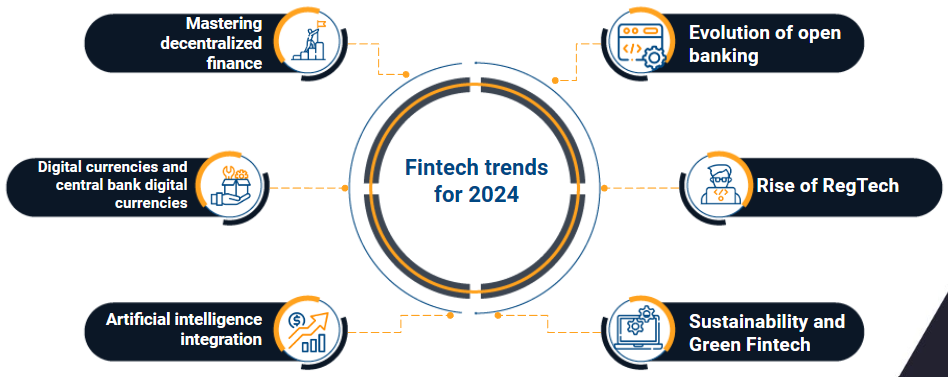
Financial technology, or Fintech as it is popularly known, is one of the most used technological innovations today and is completely changing the way in which users and clients carry out their banking operations.
For small and medium-sized businesses, it is important to have easy-to-use, reliable payment methods that allow flexibility for their clients, thus being able to increase reliability and build a portfolio of users with which they can grow.
If you don't already know the term, Fintech refers to any software, application or technological product created to automate and improve any banking process. Venmo and Cashapp are two successful examples of this type of product.
Fintech presence in the market
Products considered Fintech will only grow in popularity, this according to predictions from Statista studying the behavior of the current market. They said “Over the forecast period until 2028, the transaction value is expected to show fluctuations between the three segments. Overall, the indicator seems to follow a positive trend, as more increasing values than decreasing values are expected in the individual segments until 2028. Among them, the Digital Payments segment reaches the relatively highest value during the entire period, reaching 14, 78 trillion US dollars.”
Already with these quite positive predictions, it is safe to say that a Fintech product could be the best partner for small and medium-sized companies that need a stable and reliable payment method for their clients.
Advantages of financial technology for small and medium-sized businesses
Better access to financing
Fintech has facilitated the emergence of online lending platforms that provide quick and efficient access to capital for SMEs. These platforms typically use advanced algorithms and alternative data sources to assess creditworthiness, allowing for faster loan approval processes.
Digital payments and transactions
A banking technology product allows SMEs to accept various forms of digital payments, including mobile wallets and online payment gateways. This not only improves convenience for customers, but also streamlines the payment process for businesses. Some fintech solutions leverage blockchain technology and cryptocurrencies to enable secure and transparent transactions, reducing dependence on traditional banking systems.
Efficient financial management
Fintech offers cloud-based accounting and financial management tools that help SMEs automate and optimize their financial processes. This includes features like invoicing, expense tracking, and real-time financial reporting. Fintech solutions often incorporate machine learning and automation to handle routine accounting tasks, saving time and reducing the risk of errors.

Data analysis for decision making
Fintech platforms leverage data analytics to provide SMEs with valuable insights into their financial health. Predictive analytics can help forecast, budget, and make informed business decisions. Some fintech services offer personalized financial advice based on analysis of a company's financial data, helping SMEs make strategic decisions.
Cybersecurity and Fraud Prevention
Fintech solutions prioritize strong security measures, including encryption and secure payment gateways, to protect SMEs and their customers from cyber threats. Advanced algorithms are used to detect and prevent fraudulent activities, improving the overall security of financial transactions.
Financial inclusion
A product contributes to financial inclusion by providing SMEs with access to banking services that were previously unavailable or difficult to obtain. Fintech services often offer cost-effective alternatives to traditional banking, making financial tools and resources more accessible to a wider range of SMEs.
Normative compliance
Fintech extends to regulatory technology (regtech), which helps SMEs navigate and comply with complex financial regulations. Automated compliance tools can help you meet regulatory requirements more efficiently.
Fintech solutions have a transformative impact on SME banking by offering innovative solutions that improve access to financing, streamline financial processes, provide data-driven insights, and contribute to greater efficiency and security.
As technology continues to evolve, Fintech's role in SME banking is likely to expand, providing even more personalized and sophisticated solutions to businesses of all sizes.
We recommend you on video


